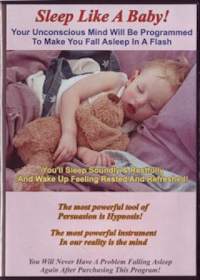|
|
 Sleep is necessary for the body to function, grow, and heal itself after an injury. Most studies recommend that adults need between six and eight hours of sleep each night. Many people, however, find themselves unable to do this. Nearly 20 million people in the United States alone experience significant difficulty sleeping each night. Sleep is necessary for the body to function, grow, and heal itself after an injury. Most studies recommend that adults need between six and eight hours of sleep each night. Many people, however, find themselves unable to do this. Nearly 20 million people in the United States alone experience significant difficulty sleeping each night.
A number of factors that cause sleep disturbances are responsible for this startling statistic. For example, many people snore. Loud snoring can actually cause sleepers to wake, startled, by their own noise. Furthermore, people who have a spouse that snores loudly often find it difficult to sleep with such a racket going on in the same room!
Snoring may also be a symptom of a related sleeping disorder known as sleep apnea. This occurs when a person stops breathing while sleeping. Sleep apnea may be caused by blockages in the nose and sinus passages, or because of obesity. This condition is potentially deadly, and those who suffer from sleep apnea often wear a mask that delivers pressured air to their lungs during sleep.
Sleep apnea can cause narcolepsy, another common sleep
disorder. Sometimes, however, people who do not have sleep apnea experience narcolepsy. People who suffer from this problem often fall asleep unexpectedly and without warning wherever they happen to be. If someone is diagnosed with narcolepsy, the doctor usually orders that person to avoid driving until the condition is under control; falling asleep while driving can be extremely dangerous!
Another potentially dangerous sleep disorder is known as sleepwalking, but is sometimes often referred to in medical literature as somnambulism. People who sleepwalk engage in the same activities - eating, drinking, walking, et cetera - that they perform while they are awake. Nearly 20 percent of the population worldwide may sleepwalk.
There are even documented cases where some people have driven or committed murder while sleepwalking! Most of the time, however, the person who is asleep is in much more danger than those around him or her. The best course of action is to help the person back to bed.
A condition called shift work sleep disorder is common to people who work rotating shifts, evening, or night shifts. This problem can result in one of two types of sleeping disorders: excessive sleepiness, or insomnia. In addition, people who experience shift work sleep disorder have a higher risk of cancer than those who do not suffer from it.
People diagnosed with insomnia often have difficulty falling asleep at night. If they are able to fall asleep, they often fail to sleep well and are awakened easily. They may only sleep for a few hours before experiencing this disturbance.
The effects of insomnia include sleepiness and impaired physical coordination. Although people who experience insomnia may feel sleepy, however, chronic insomnia sufferers may find that they are continually over-alert, and find it difficult to relax or remain calm. Other possible effects of insomnia include physical and mental fatigue.
Many people have ideas about how to cure insomnia. Some of these include some interesting home remedies for insomnia. One of these is a combination of honey and apple cider vinegar, although there is no solid evidence demonstrating that this concoction works. Other home remedies for insomnia include drinking warm milk at bedtime, relaxing while playing slow music, and relaxation or meditation exercises.
Alternative insomnia cure strategies include Chinese medicine or acupuncture, and aromatherapy. Many herbal remedies have been used as possible ways to cure insomnia, including valerian, lavender, and hops. Some persons have even tried behavioral therapy approaches in hopes of finding a successful insomnia cure. A large number of medications are also used to help people sleep.
One of the newer cures for insomnia is insomnia hypnosis, or insomnia hypnotherapy. Professionals who practice insomnia hypnotherapy coach sufferers to experience healthy sleeping patterns by introducing a series of suggestions that will allow them to fall asleep more easily. People are taught the skills of self-hypnosis to successfully treat this problem. Self-hypnosis is a form of insomnia hypnosis that is often very effective for suggestive persons, but is not as useful for people who think analytically. A very similar strategy, known as Neuro-Linguistic Programming, or NLP, is often more useful with these individuals.
So many possible cures for insomnia exist that this article cannot cover them all. Experts disagree about how to cure insomnia. The majority of people who have tried NLP and insomnia hypnosis, however, have found them most effective in meeting their need for sound, restful sleep. This uniquely effective treatment, unlike medicines or some other remedies, has no hangover or side effects, and can be practiced almost anywhere.
Summary: Between five and ten percent of the American population suffers from some type of sleeping disorder. Insomnia is a sleeping disorder that prevents individuals from falling asleep or sleeping soundly at night. Various treatments have been used to help people cope with this problem. One of the most effective, as reported by those who have tried this treatment method, is hypnotherapy for insomnia.
A
list of the common uses of hypnosis.
� 2008 By Alan B. Densky, CH. This
document may NOT be re-printed. All Rights Reserved.

Alan B. Densky, CH. is certified by the National Guild Of Hypnotists, and he is an NLP Practitioner. He offers hypnotherapy CDs for insomnia. He hosts a FREE hypnosis article library on his Neuro-VISION Video Self-Hypnosis website.
|
|


